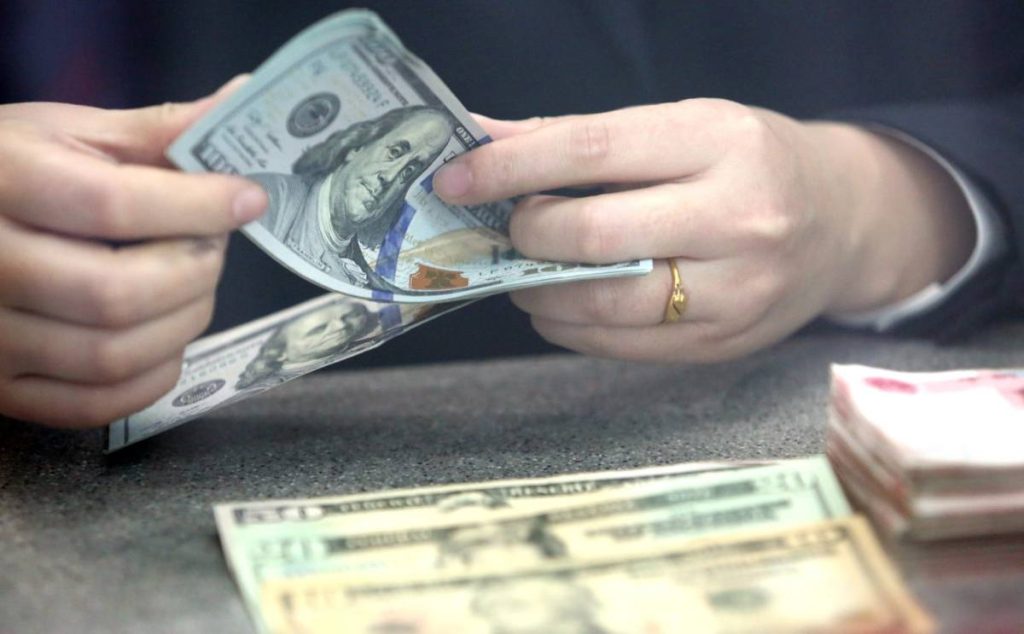
The growth-sensitive Australian dollar fell 1% to $0.6999, its lowest since February. Sterling and the New Zealand dollar hit 22-month lows, while the euro and yen were barely above recent major troughs….reports Asian Lite News
The dollar hit a two-decade high on Monday as investors searched for safety and yield in the face of growing concern over slowing global economic growth and rising interest rates.
Surging inflation, the war in Ukraine, and tighter lockdowns against COVID-19 in Beijing and Shanghai, have left investors uncertain on many counts, but they are sure that U.S. interest rates are going up – and the dollar has been following.
The dollar index, which measures the greenback against six major currencies, is up nearly 9% this year and hit its highest since late 2002 on Monday at 104.090.
The growth-sensitive Australian dollar fell 1% to $0.6999, its lowest since February. Sterling and the New Zealand dollar hit 22-month lows, while the euro and yen were barely above recent major troughs.
“Moves in U.S. interest rates are not the only dollar support,” said strategists at NatWest Markets in a note.
“Downside risks to global growth stemming from Ukraine and China are more pressing for Europe and Asia relative to the U.S., creating an air of 2018-style dollar exceptionalism.”
The dollar’s gains were set against sliding stockmarkets and sent it ahead against other havens, commodity currencies and emerging market currencies alike.

It rose 0.3% to its highest since 2019 on the Swiss franc. It was up 0.4% and near a two-decade high at 131.00 yen and tested recent peaks at $1.0508 per euro.
Weighed by the Bank of England’s gloomy outlook, sterling fell 0.5% to its lowest since mid 2020 at $1.2268. The Canadian dollar hit its lowest since December.
In China trade data showed imports flatlined in April and exports rose 3.9%.
That was a little better than expected but proved little help to the yuan which was dragged to a fresh 18-month low of 6.7260 per dollar as lockdowns in Shanghai were tightened.
Traders see the fallout from the inevitable drag on China’s economy raking across the region.
The kiwi fell 0.9% to $0.6346 and the U.S. dollar made multi-year highs on the trade-sensitive Taiwan dollar, South Korean won, Singapore dollar and Malaysian ringgit.
It hit its highest in nine months against the Indonesian rupiah.
The yield on benchmark 10-year U.S. government bonds has climbed a staggering 163 basis points this year and taken the dollar with it.
Speculation that Russian President Vladimir Putin might declare war on Ukraine in order to call up reserves during his speech at “Victory Day” celebrations also hurt market sentiment.
Putin has so far characterised Russia’s actions in Ukraine as a “special military operation”, not a war, or an invasion.
The U.S. Federal Reserve hiked its benchmark funds rate 50 basis points (bps) last week and strong jobs data has reinforced bets on further big hikes, with inflation figures due on Wednesday in focus as next risk of an upside surprise.
Futures markets are pricing a 75% chance of a 75 bp rate rise at the Fed’s next meeting in June and more than 200 bps of tightening by year’s end.
“Risks around U.S. CPI feel binary; a moderation from 8.5%would be mildly comforting, but a lift would doubtless revive expectations for 75 bp Fed hikes, and probably give the dollar a boost,” said analysts at ANZ Bank.
“The idea that synchronised global tightening might proceed gently now feels like a forgotten dream.”
Cryptocurrencies have been battered in the rush from risky assets and bitcoin was nursing weekend losses and near its lowest levels of the year at $33,500 while ether, which fell 4% on Sunday, was at $2,440.
ALSO READ: Russia presses Ukraine assault as Putin marks Victory Day


